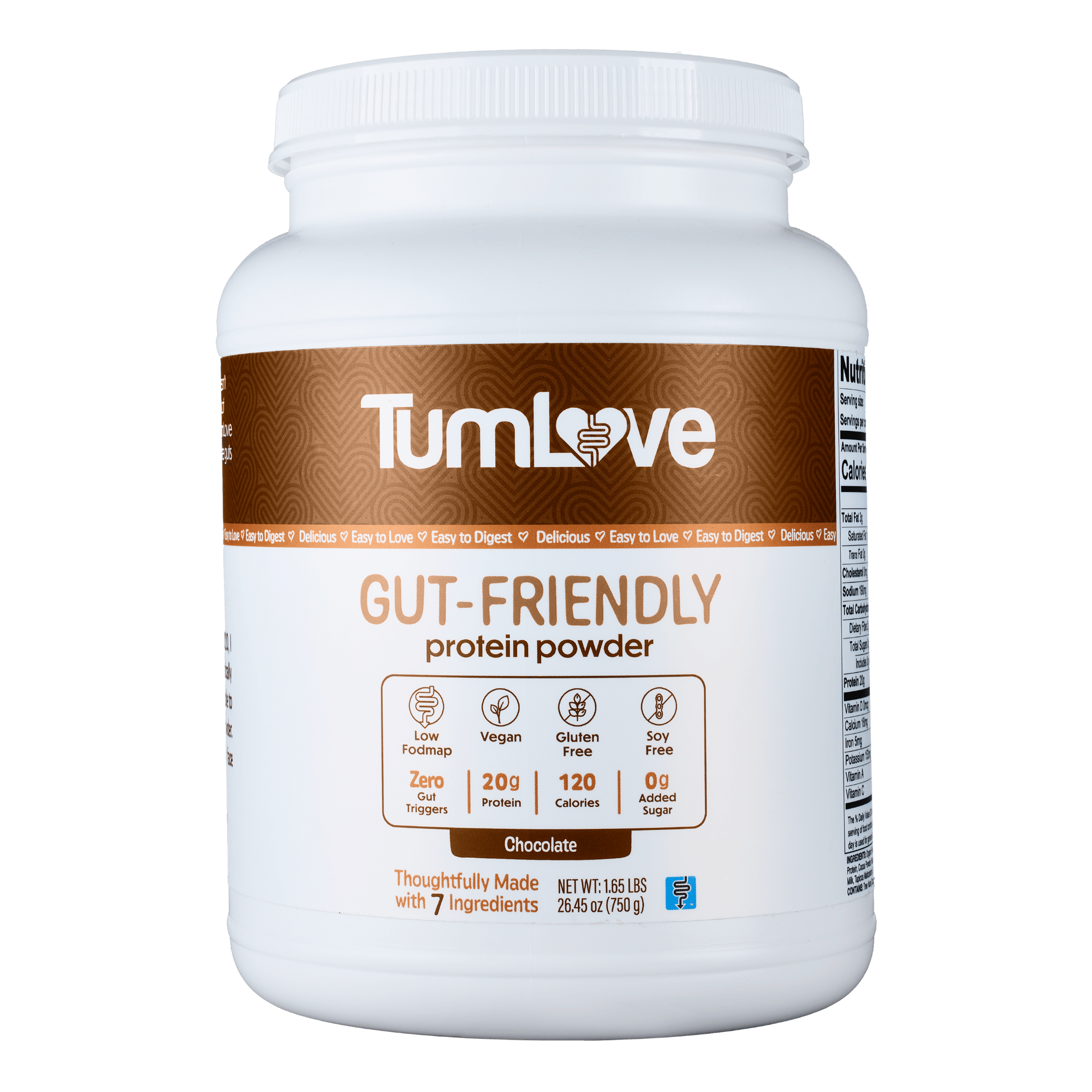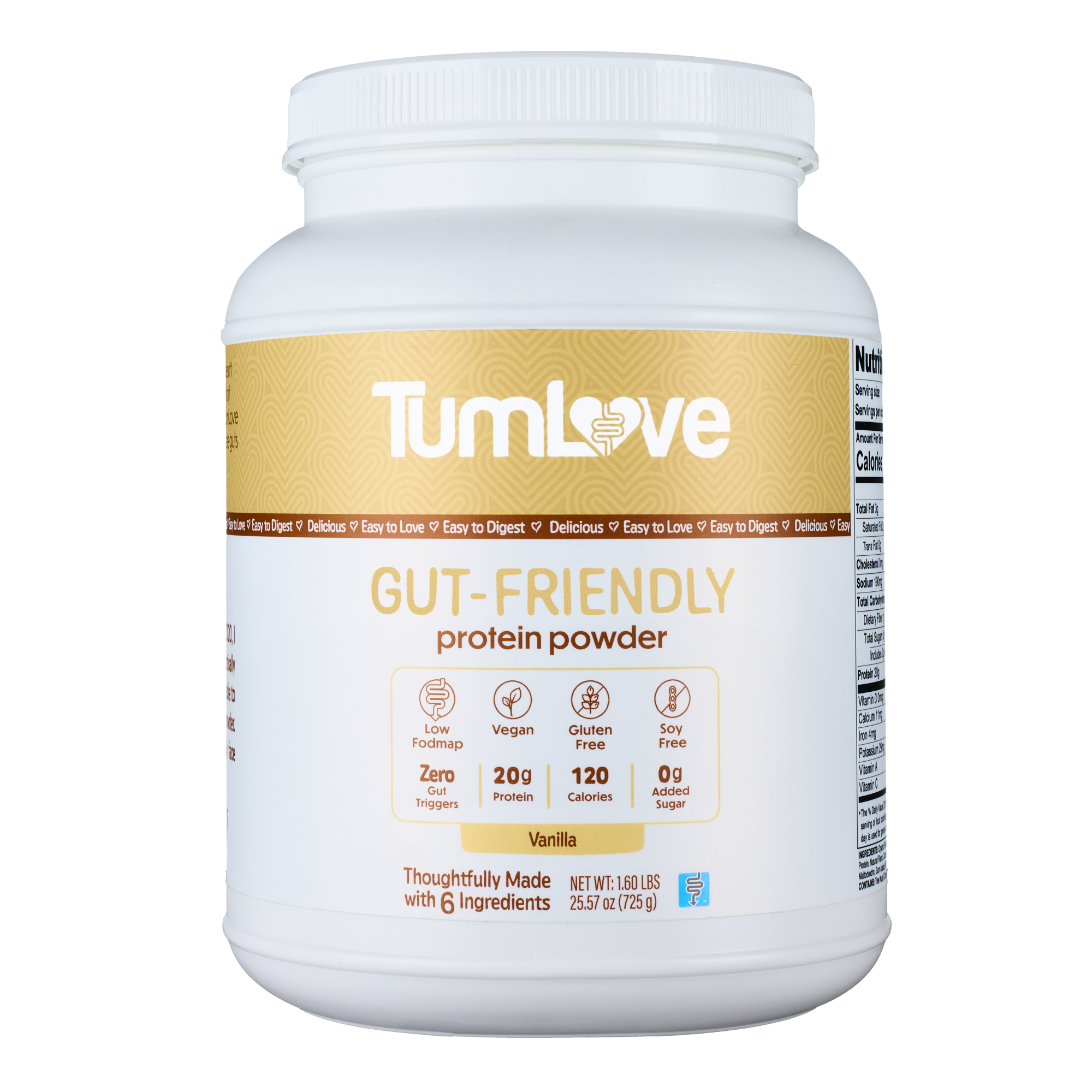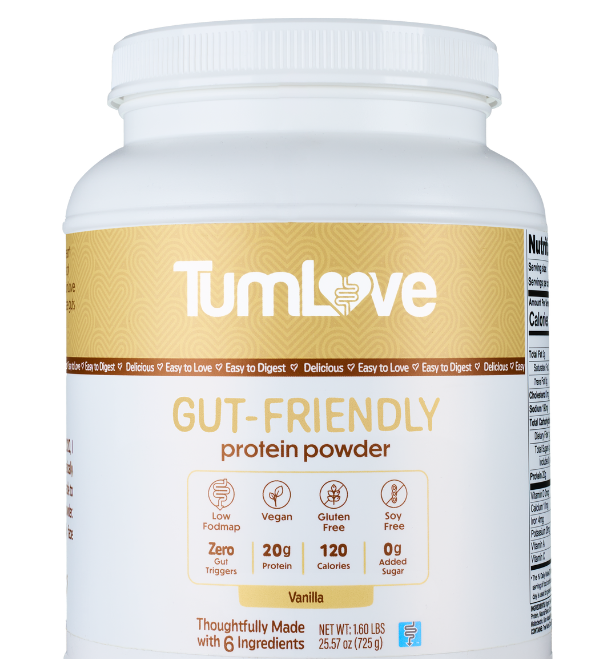TumLove is a leading provider of low FODMAP protein, and is the go-to choice for individuals on the low FODMAP diet. TumLove products are specifically formulated to minimize triggers for IBS sufferers. By prioritizing taste, nutrition, and convenience, TumLove empowers individuals to take control of their gut health and enjoy a diverse, flavorful diet while adhering to low FODMAP guidelines.
★★★★★
"Now I can do what I love while feeling great!"
- Lileia S.
If you're someone who suffers from Irritable Bowel Syndrome (IBS), you know that managing the symptoms can be a real challenge. But there is hope. In recent years, a diet known as Low FODMAP has emerged as a promising solution for managing IBS symptoms.
Research has shown that a low FODMAP diet can help reduce bloating, gas, abdominal pain, and other uncomfortable symptoms associated with IBS. In this article, we'll explore the science behind low FODMAP diets and how they work to alleviate IBS symptoms.
What are FODMAPs?
FODMAPs are short-chain carbohydrates that are poorly absorbed in the small intestine. FODMAP stands for Fermentable Oligosaccharides, Disaccharides, Monosaccharides, and Polyols. These carbohydrates are found in a wide range of foods, including fruits, vegetables, grains, and dairy products.
For people with IBS, FODMAPs can be a trigger for symptoms such as bloating, gas, abdominal pain, and diarrhea. This is because FODMAPs are rapidly fermented by bacteria in the large intestine, which can lead to an increase in gas production and water retention.
How Does a Low FODMAP Diet Work?
A low FODMAP diet is designed to reduce the intake of these fermentable carbohydrates. By limiting the amount of FODMAPs in your diet, you can reduce the amount of fermentation that occurs in the large intestine, which can help alleviate IBS symptoms.
The low FODMAP diet is typically done in two phases. In the first phase, you eliminate high FODMAP foods from your diet for a period of 4-6 weeks. This allows your gut to heal and your symptoms to improve. In the second phase, you gradually reintroduce high FODMAP foods to your diet to determine which ones trigger your symptoms.
Benefits of a Low FODMAP Diet for IBS Management
Research has shown that a low FODMAP diet can be an effective way to manage IBS symptoms. In fact, one study found that up to 75% of people with IBS who followed a low FODMAP diet experienced a reduction in symptoms.
The benefits of a low FODMAP diet for IBS management include:
- Reduced bloating and gas
- Improved abdominal pain and discomfort
- Improved bowel regularity
- Reduced diarrhea and constipation
Foods to Avoid and Include in a Low FODMAP Diet
The low FODMAP diet involves avoiding high FODMAP foods and including low FODMAP foods in your diet. Some high FODMAP foods to avoid include:
- Wheat and other gluten-containing grains
- Dairy products such as milk, yogurt, and cheese
- Certain fruits such as apples, pears, and mangoes
- Certain vegetables such as onions, garlic, and asparagus
- Legumes such as chickpeas, lentils, and kidney beans
Some low FODMAP foods to include in your diet include:
- Gluten-free grains such as rice, quinoa, and oats
- Lactose-free dairy products such as lactose-free milk and hard cheeses
- Low FODMAP fruits such as bananas, blueberries, and oranges
- Low FODMAP vegetables such as carrots, zucchini, and spinach
- Protein sources such as meat, fish, and tofu
Meal Planning on a Low FODMAP Diet
While a low FODMAP diet can be challenging to follow, meal planning can help make it easier. Here are some tips for meal planning on a low FODMAP diet:
- Plan your meals in advance to ensure that you have low FODMAP options available.
- Experiment with new recipes that use low FODMAP ingredients.
- Stock up on low FODMAP snacks such as rice cakes, nuts, and seeds.
- Use herbs and spices to add flavor to your meals instead of high FODMAP ingredients.
Pro Tip: Protein powders and meal replacements can make the diet more manageable by providing an easy solution to add nutrients to your diet, without all of the prep.
Research Supporting the Effectiveness of a Low FODMAP Diet
There is a growing body of research that supports the effectiveness of a low FODMAP diet for managing IBS symptoms. For example, a review of 22 clinical trials found that a low FODMAP diet was effective for reducing IBS symptoms in both the short and long term.
Another study found that a low FODMAP diet was more effective at reducing IBS symptoms than a traditional IBS diet that did not restrict FODMAPs.
Conclusion and Next Steps for Trying a Low FODMAP Diet
If you're considering a low FODMAP diet to manage your IBS symptoms, it's important to work with a registered dietitian who is knowledgeable about the diet. A dietitian can help you navigate the challenges of the diet, ensure that you're getting all the nutrients you need, and provide guidance on meal planning and food choices.





